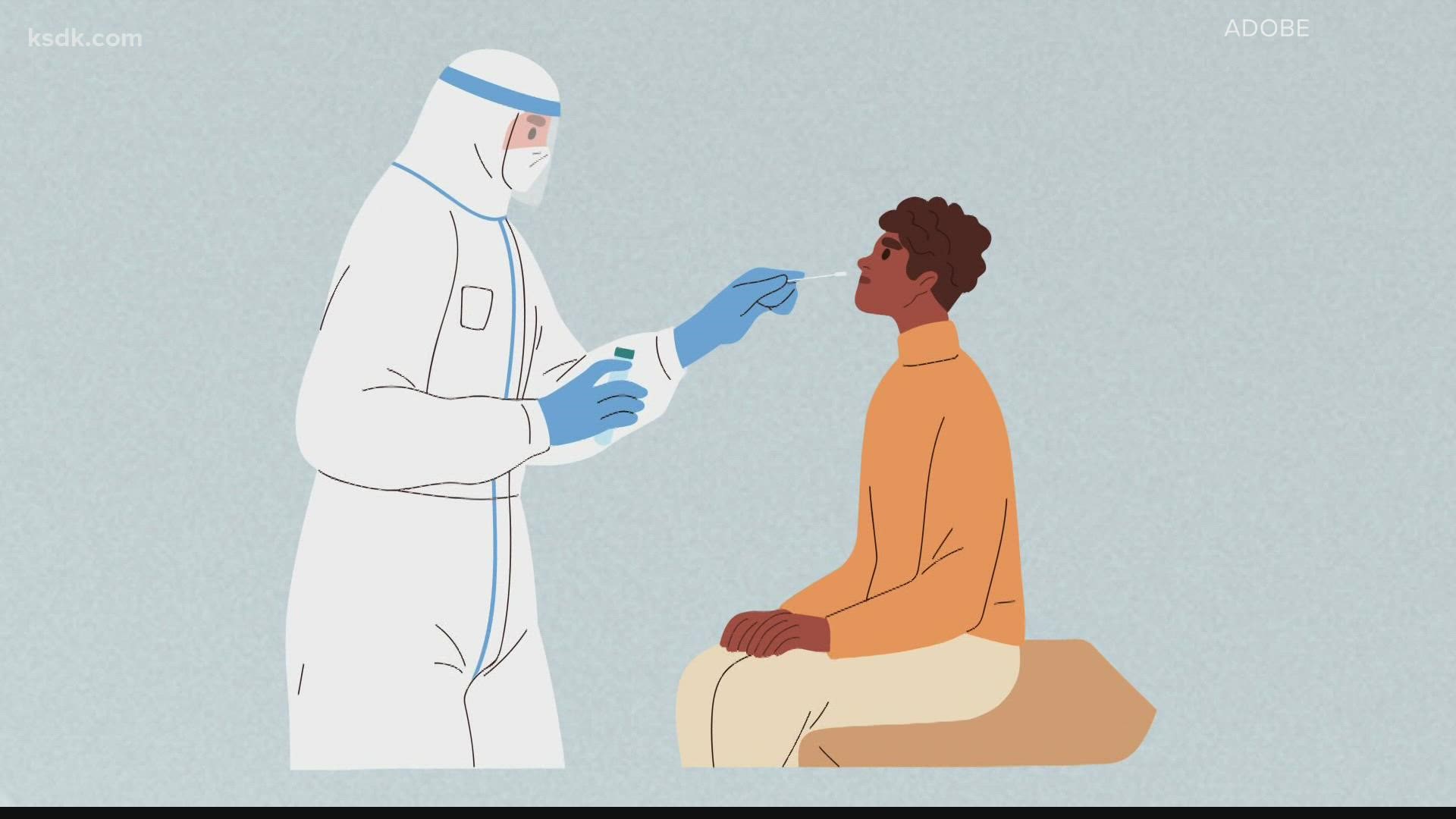ST. LOUIS — Feeling sick? Going on a trip, visiting loved ones, or back to work? Looking for peace of mind? There are many reasons people are seeking out rapid, at-home COVID-19 tests right now — so what happens after you take the test?
There are two types of diagnostic tests used to detect COVID-19 in the U.S. One is an antigen test, commonly called a rapid test because results are available in minutes. The other is a molecular test, which is often a polymerase chain reaction (PCR) test.
PCR tests involve a lab process that can detect the genetic material of SARS-CoV-2, the virus that causes COVID-19. That’s why it typically takes a couple of days to get results.
The kits you can buy at a pharmacy are about as effective as the rapid tests available in a clinic setting. But because the PCR tests are more sensitive than antigen tests, emergency medicine doctor and director of 24/7 Healthcare Dr. Sonny Saggar said the PCR lab tests are the “gold standard” in detecting the virus.
It's why he recommended most people follow up with a PCR test after an at-home test, if one is available for scheduling.
“I think most doctors will recommend to be 100% sure about what's going on, get a PCR,” he said.
What if your rapid test is positive?
If the rapid test is positive, you’re likely positive — whether or not you’re showing symptoms. Getting a PCR test confirmation could be needed for some workplaces. Otherwise, Saggar said confirmation PCR tests aren't necessary, and you should treat it like a positive result and just stay home.
“Just assume you're positive,” he said.
Additionally, some health departments want to hear from you if you test positive, for COVID-19 mitigation as well as data purposes.
Showing symptoms but testing negative?
If you're having COVID-19 symptoms but your rapid test came back negative, try again in a few days and look for a PCR test; in the meantime, err on the safe side and stay home.
“A rapid test will be more likely to be negative if you have no symptoms at all, even if you are actually technically positive because it is less accurate than a PCR test,” said Dr. Saggar. “Even if it's not COVID, think back to a couple of years before the pandemic. Should you really be going into work or school anyway if you've got a possibly infectious upper respiratory illness?”
What if you are asymptomatic, had no recent exposures, and your rapid test comes back negative?
This is often the case when someone is testing before seeing a loved one out of an abundance of caution. Dr. Saggar said you’re probably in the clear.
“That's probably the only case where I might say it's OK, you don't have to get a PCR,” he said.
Following the holiday gatherings and amid the surge in cases, he said we should now be in a season of healthy caution. That means even if you can't find a test, avoid passing the virus with the help of vaccines, masks and distance when necessary.
“It's just common sense,” he said.

